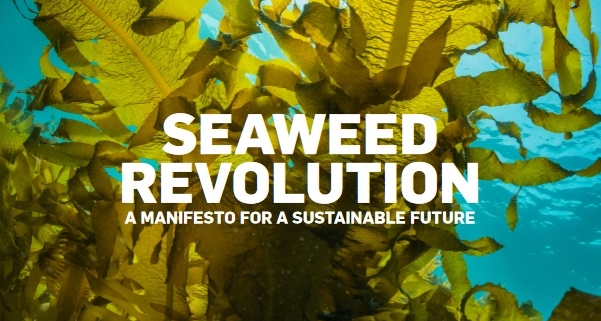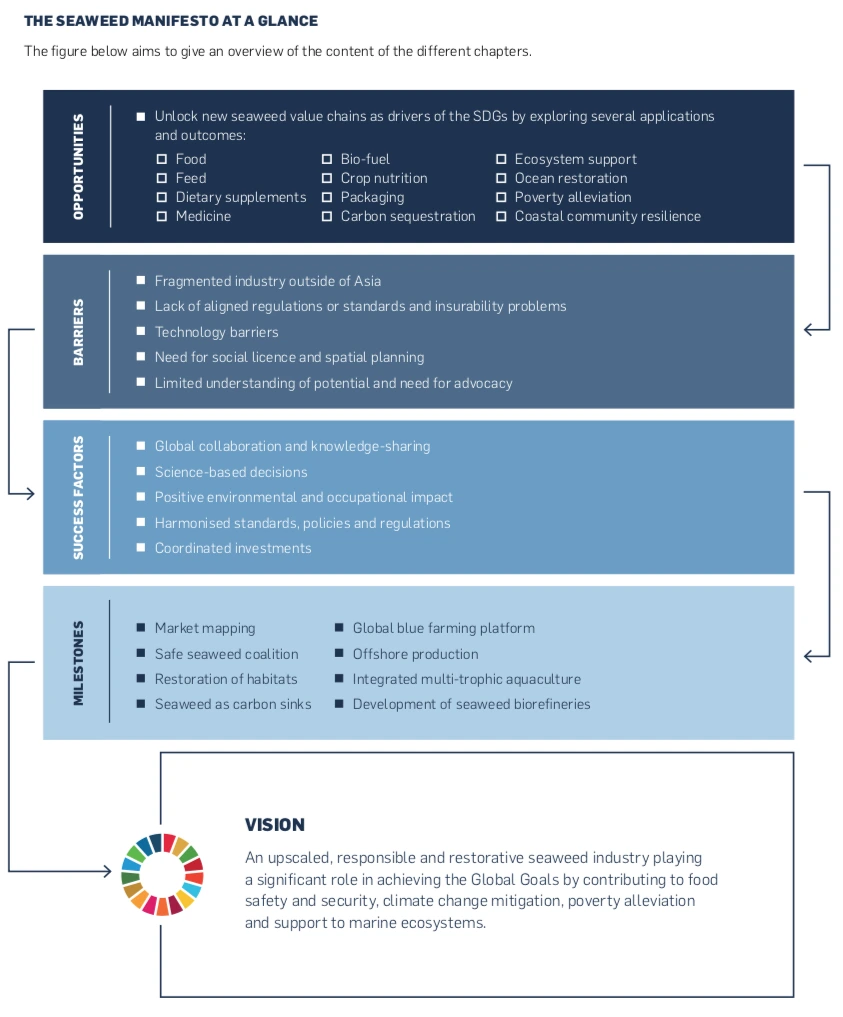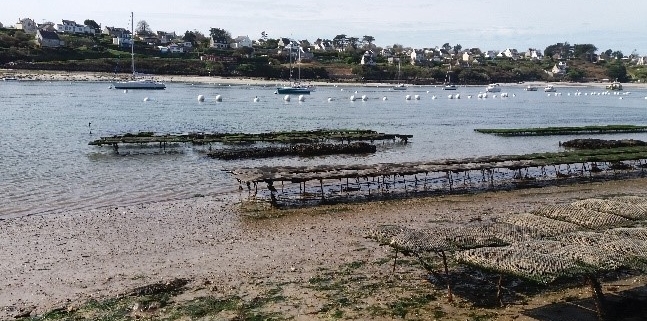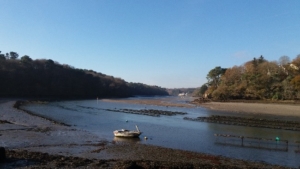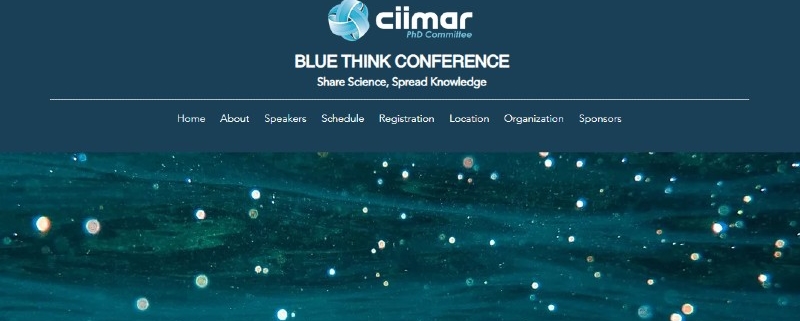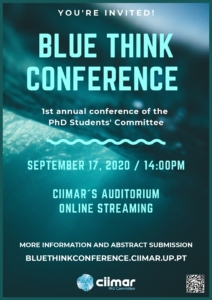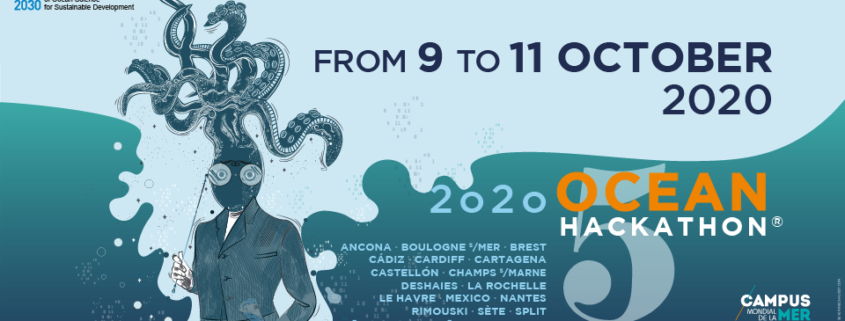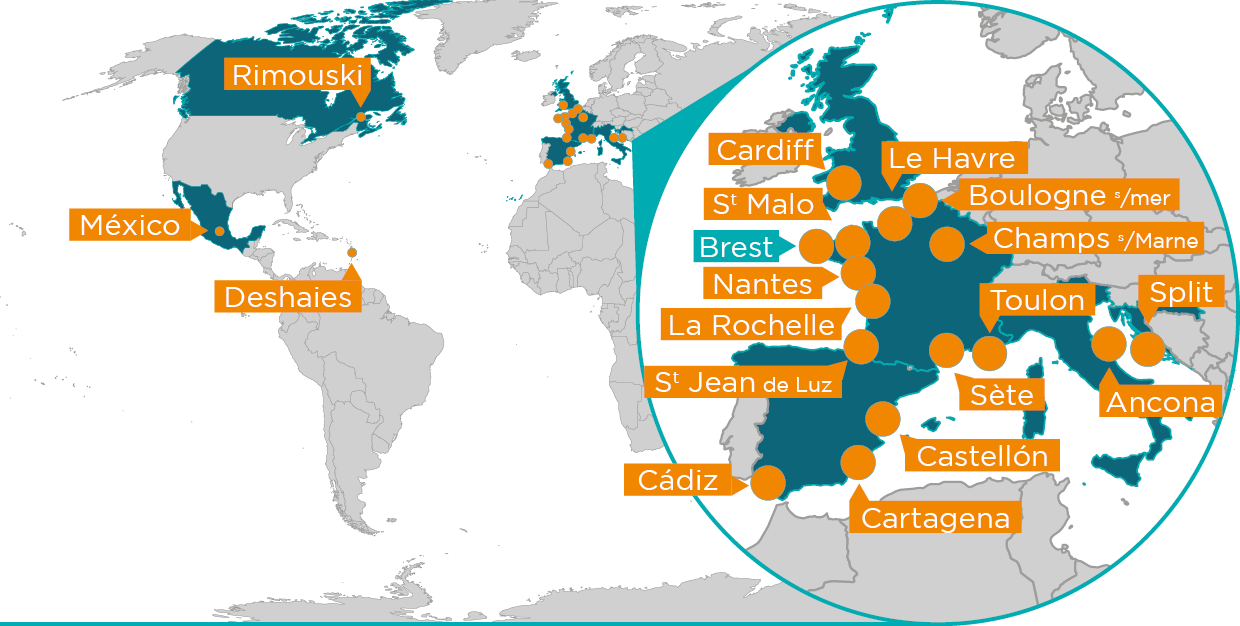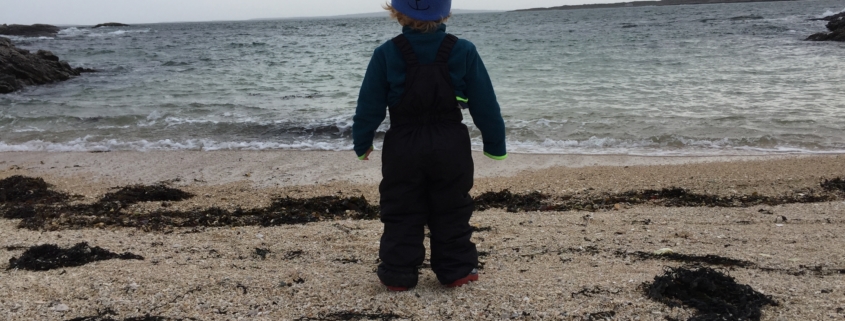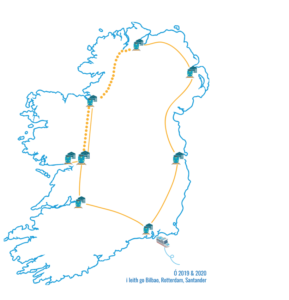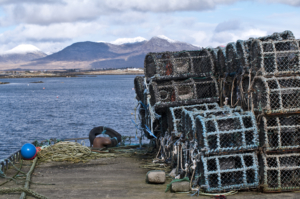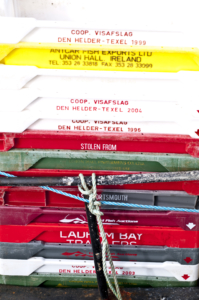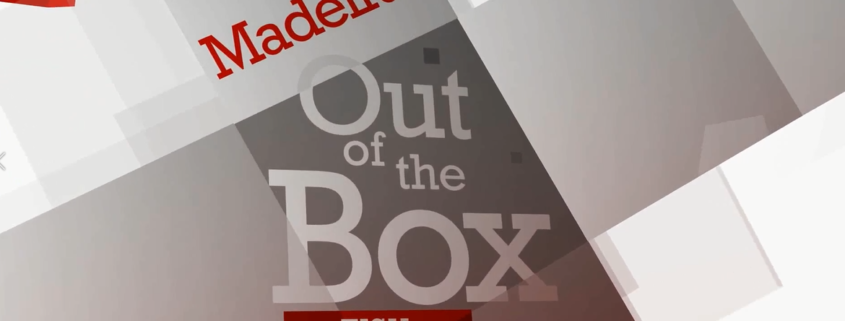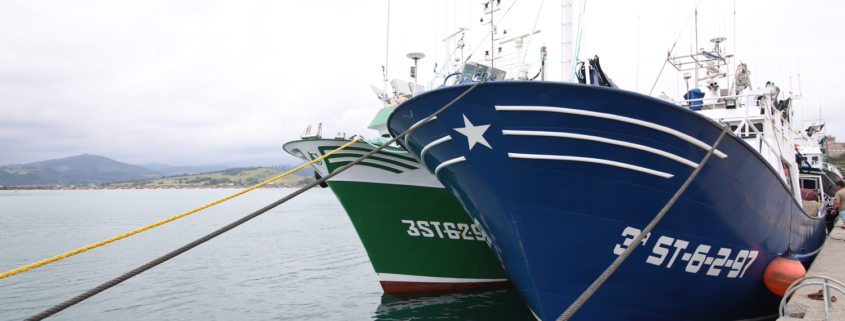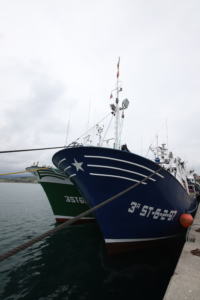Fás iomaíoch, inmharthana i soláthar bia mara: Access2Sea ag Seachtain Tuairimí Gnó Mhaigh Eo
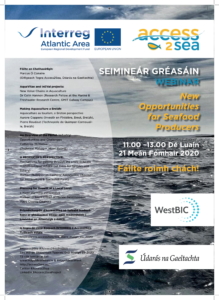
Tá an dobharshaothrú ar cheann de na hearnálacha is tábhachtaí i nGeilleagar Gorm i Limistéar an Atlantaigh. Tá sé ag brath ar thraidisiúin thábhachtacha in go leor tíortha san AE agus mórán dá chósta. Mar chuspóir ag an togra seo, tá muid ag brath ar thuairimí agus saineolas ó pháirtithe a bhfuil dlúthbhaint acu le hobair sa ngeilleagar gorm, an dobharshaothrú go speisialta.
Reachtáileadh seimineár gréasáin New Opportunities for Seafood Producers ar na mallaibh mar chuid de Sheachtain Tuairimí Gnó Mhaigh Eo, http://mayoideasweek.ie/schedule/.
Clár imeachtaí Access2ea ag Seachtain Tuairimí Gnó Mhaigh Eo.
I measc na n-ábhar a pléadh ná díolachán díreach: tionscail na mbialanna sliogéisc cois cladaigh sa mBriotáin, áit a bhfuil cead ag feilméaraí sliogéisc a gcuid táirge a dhíol as bialann taobh leis an bhfoinse soláthair. Tá cuid sciar mhór d’iarthar na hÉireann buailte ar an uisce sáile is glaine san Eoraip agus tá luach an ard ar an mbia mara a thagann as dá réir. Ráite ar bhealach eile, is féidir iasc a bheirtear ar i neart cuanta an taobh seo tíre a dhíol díreach agus gan phróiseáil. Deis ar leith do phobail in iarthar na hÉireann mar sin, ach cuir chuige i gcúrsaí pleanála, reachtaíochta agus tacaíochta pobail a réiteach. Obair le déanamh go fóill, mar sin.
Rinne Michael Mulloy ó fheirm éisc Blackshell i gCuan Mó agus urlabhraí de chuid Chumann Feirmeoirí na hÉireann cuir síos ar dheacrachtaí anois agus ar na bacáin do thionscail an dobharshaothraithe agus bealaí le theacht as. Is mó bacanna ná an Breatimeacht agus an paindéim a bhí le sárú, reachtaíocht ag coinneáil táirgeoirí dobharshaothraithe siar go mór sa tír seo. Tháinig sé seo go mór leis an méid a bhí le rá ag Catherine McManus as Mowi, comhlacht idirnáisiúnta feirmeoireacht bradán le 303 fostaí lánaimseartha acu ar fud fad chosta iartharach na hÉireann. Tá an múnla atá in úsáid acusan bunaithe ar bhradán orgánach in ndabhacha doimhne ag iomrascáil le heaspa dul chun cinn mar nach bhfuil ceadúnais nua le fáil le glúin anuas sa tír seo. Níl maith ar bith sna seancheadúnais a ceadaíodh os cionn 20 bliain, a deir sí, os rud é nach bhfuil na suíomhanna a ceadaíodh ag an am feiliúnach do shláinte na mbradán agus cleachtais nua-aimseartha mar go bhfuil siad ar an tanaí den chuid is mó mar a bhíodh de nós ag an am.
Ag teacht leis an méid an easpa fáis in éadan níos mó coinníollacha agus bacanna ar fhorbairt ná aon cheard eile den tír atá ar cheann de na deacrachtaí is mó atá le sárú san earnáil seo agus gach réimse forbartha agus gnó eile dar le cainteoir deireadh an lae, Michael O’Boyle, Comhairle Contae Mhaigh Eo. D’éirigh go geal leis an ócáid inar thrasnaigh téamaí ó chainteoir go cainteoir. Ag tarraingt an méid a bhí le rá ag an gcéad cainteoir, an Dr. Colin Hannon as Institiúid Teicneolaíochta na Gaillimhe agus Mhaigh Eo leis an gcainteoir deireadh Michael O’Boyle, teastaíonn cur le luach agus comhthathú ar achmhainní in iarthar na hÉireann. Ní neart go cur le chéile.
Lón machnaimh mar sin curtha ar fáil ag earnáil na mara. Tá súil leis an gcéad seimineár gréasáin eile roimh dheireadh na bliana, áit a mbeidh Access2Sea ag cuir síos ar thogra píolótach bia mara. Coinnigh súil amach mar sin ar http://access2sea.eu!

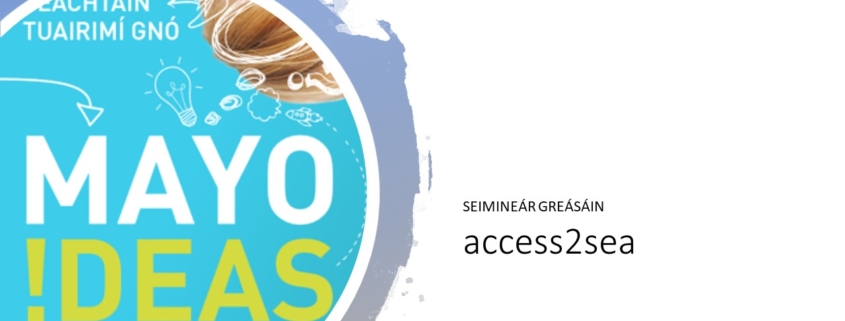
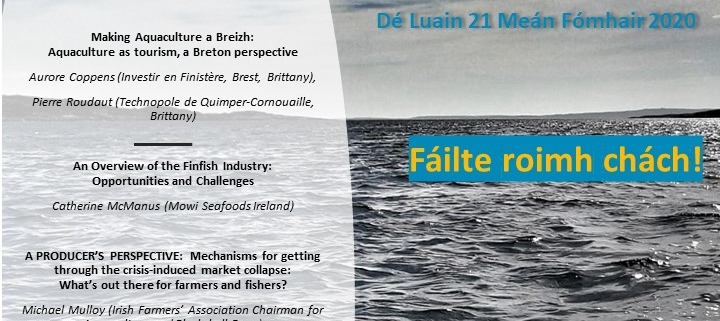 MÓC,Access2Sea
MÓC,Access2Sea